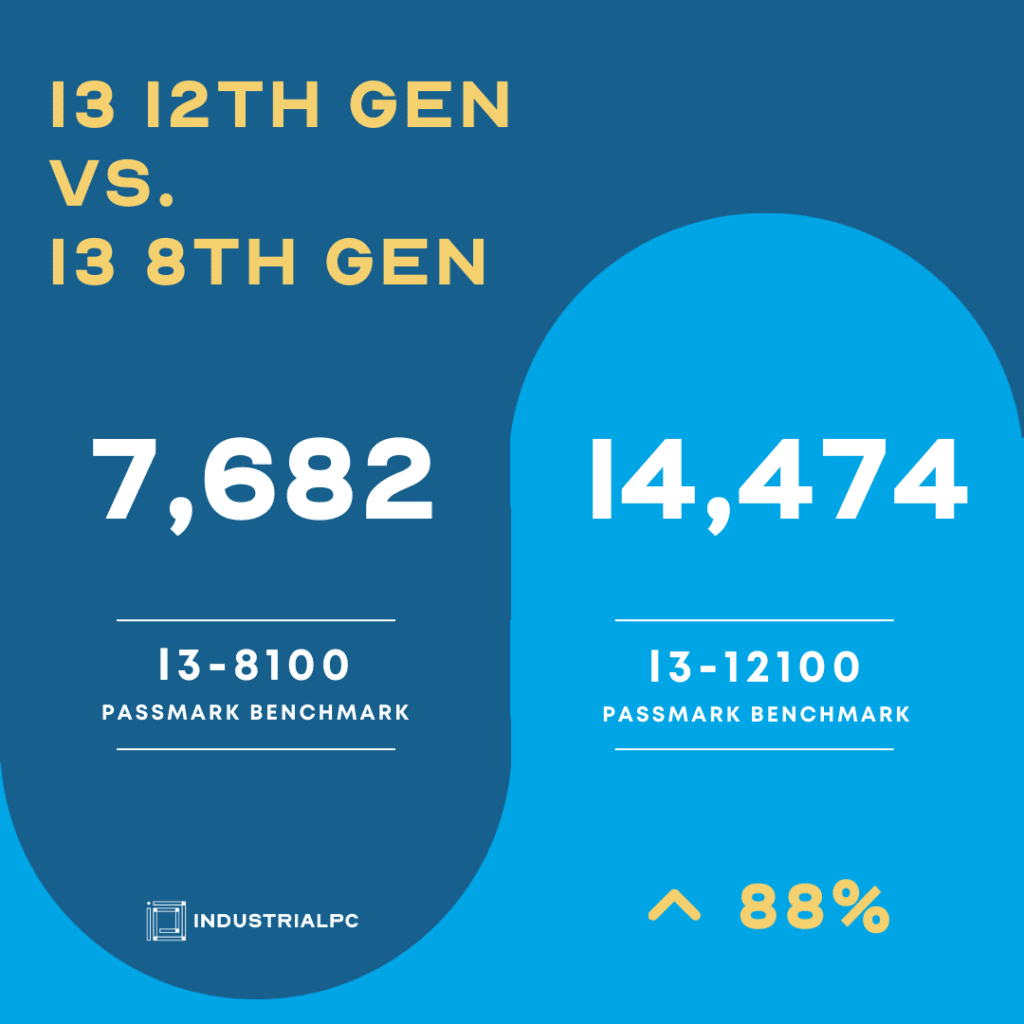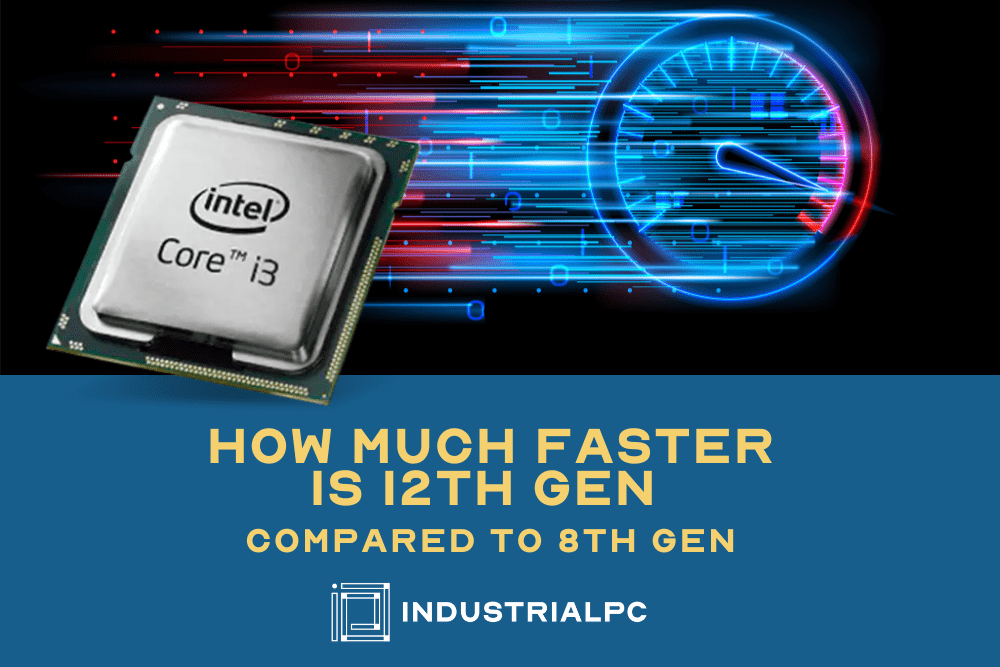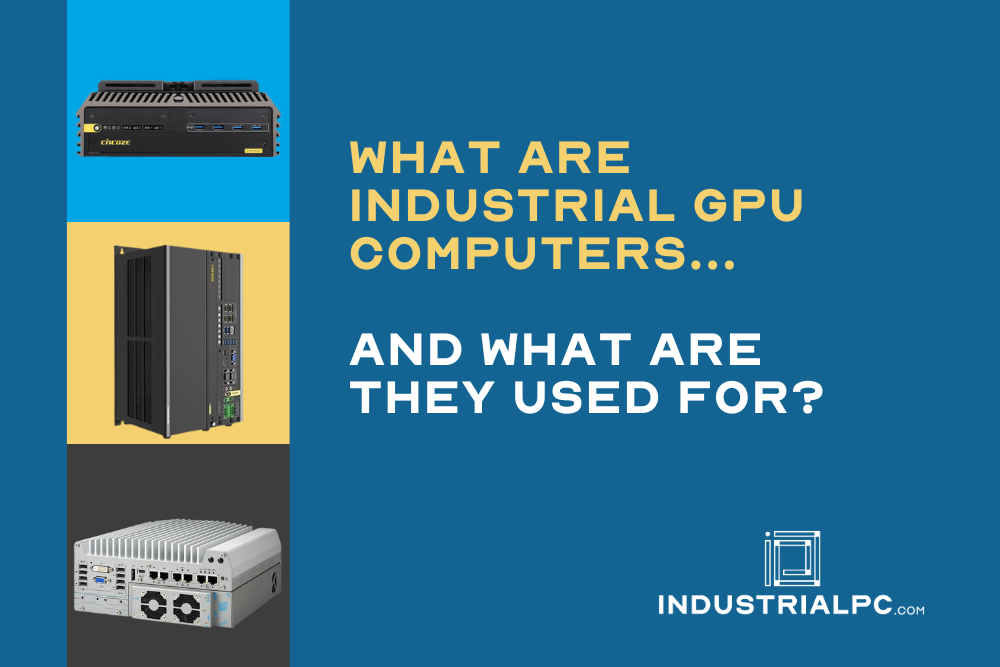Upgrading to 12th Gen i3 Processor? Here’s How Much Faster It Is Compared to 8th Gen i3
Upgrading to 12th Gen i3 Processor? Here’s How Much Faster It Is Compared to 8th Gen i3
As technology continues to evolve, upgrading to the latest processor is often necessary to stay ahead of the competition in industrial computing. Intel’s latest release of the 12th Gen i3 Processor promises significant improvements in performance over its predecessors.
But just how much faster is the 12th Gen i3 compared to the 8th Gen i3? After all, they are both i3 processors. So, is it worth considering an upgrade for your industrial computing applications?
Let’s find out…
Overview of the 8th Gen i3
The 8th Gen i3 processor, also known as the Coffee Lake series, was released in 2017 and uses a traditional quad-core design without the hybrid architecture of the 12th Gen. The i3-8100 is the entry-level model of the 8th Gen i3 series, with a base clock speed of 3.6GHz and four cores without hyperthreading.
The i3-8100 supports up to 16 lanes of PCIe 3.0, DDR4 memory, and Intel UHD Graphics 630.
Overview of the 12th Gen i3
The 12th Gen i3 processor is part of Intel’s Alder Lake platform, which uses a hybrid architecture that combines high-performance and high-efficiency cores. The i3-12100 is the entry-level model of the 12th Gen i3 series, with a base clock speed of 3.1GHz and four high-efficiency cores and four high-performance cores.
The i3-12100 also supports up to 20 lanes of PCIe 4.0, DDR5 memory, and Intel’s latest integrated graphics, the Intel UHD Graphics 750.

Performance Comparison
To compare the performance of the two processors, we used the PassMark benchmark, a widely recognized and reliable tool for measuring CPU performance. The PassMark score is an overall measure of CPU performance, taking into account factors such as single-core and multi-core performance, memory performance, and integer and floating-point calculations.
According to the PassMark benchmark, the i3-12100 has a score of 14,474, while the i3-8100 has a score of 7,682. This means that the 12th Gen i3 is almost twice as fast as the 8th Gen i3 in overall CPU performance.
The single-core performance of the i3-12100 is also significantly higher than the i3-8100, with a score of 3,038 compared to 2,191. This means that the 12th Gen i3 is more responsive and can handle single-threaded tasks more quickly.
Deep Learning Boost
Deep Learning Boost
In addition to the improved core count and clock speed, the 12th Gen i3 features Intel Deep Learning Boost, which provides improved performance for AI and machine learning applications. This is particularly beneficial in industrial computing where machine learning and AI are used to automate processes and improve efficiency.
The new processor can also support up to 128GB of DDR4 memory, which is double the amount supported by the 8th Gen i3. This means that the processor can handle more data-intensive applications and processes without slowing down.
What Other Factors Should be Considered When Comparing 12th Gen to 8th Gen?
What Other Factors Should be Considered When Comparing 12th Gen to 8th Gen?
Outside of speed, there are two other factors to consider: Reliability & Efficiency
Reliability
When it comes to industrial computing, reliability is extremely important. The 12th Gen i3 processor features Intel Hardware Shield, which provides advanced security features to protect against malware and other threats. It also supports Intel vPro technology, which allows for remote management and monitoring of devices, making it easier to manage large-scale industrial computing systems.
Efficiency
In terms of energy efficiency, the 12th Gen i3 processor is a significant improvement over the 8th Gen i3. It has a lower thermal design power (TDP) of 65W compared to the 8th Gen i3’s 91W. This means that it consumes less power and generates less heat, resulting in improved energy efficiency and a longer lifespan for the processor.
In Conclusion
In Conclusion
Upgrading to a 12th Gen i3 processor is a wise investment for industrial computing applications. With its improved core count, clock speed, support for AI and machine learning applications, advanced security features, and improved energy efficiency, the new processor provides significant performance improvements over the 8th Gen i3.
If you’re looking to upgrade your industrial computing systems, the 12th Gen i3 processor is definitely worth considering. Give us a call today to learn more.















